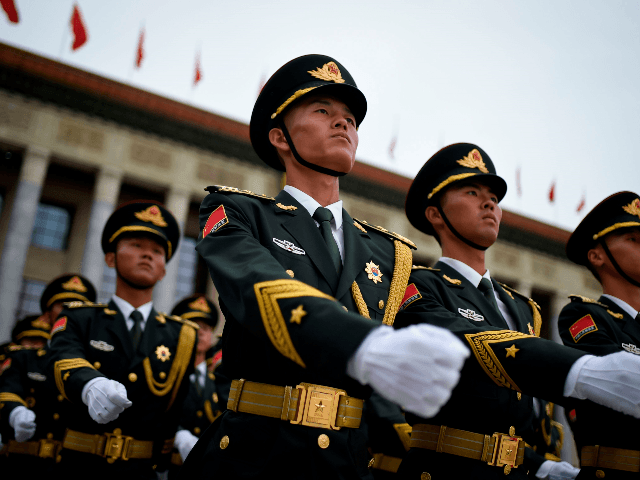Chinese Communist Party (CCP) head Xi Jinping on Sunday told his Central Military Committee (CMC) that it will be essential for the Party to keep tight “grips” on the military as it grows and decentralizes to deal with the fast pace of modern military challenges.
“The grass-roots level of the military is experiencing new conditions and changes in its mission, construction, daily operation, unit structure, personnel composition and social environment. Our commanders and soldiers should be courageous and our troops should be powerful as tigers,” said Xi, who is chairman of the CMC, among his many other titles.
Xi said the growing autonomy of lower-ranked units in the People’s Liberation Army (PLA), which he invested a great deal of time and money in modernizing, made it necessary for the CCP to maintain strong political control, enforcing discipline and keeping lower-ranking officers free of “micro-corruptions and improper practices.”
“He called for efforts to forge a primary-level military that listens to and follows the Party, and make sure that the Party’s absolute leadership over the military reaches the primary level and all military personnel,” as China’s state-run Xinhua news service put it.
Xi’s emphasis on “all-around progress in developing the military at the primary level” can be taken as an acknowledgment that Chinese troops must not only receive better equipment and develop the skills to use it properly but must also become more flexible and more capable of operating in high-stress environments without extensive central supervision. This appears to have introduced some concerns about those more autonomous troops and low-ranking officers becoming less politically reliable.
China must also contend with a larger field of deployment for its troops, which are moving to new bases and outposts across the world as Beijing develops its Belt and Road infrastructure plan. To put it bluntly, the PLA has a lot of problems with corruption and discipline even with units that never leave China. Sending more of them further abroad will make it much more difficult for the Communist Party to maintain that firm “grip” on them, particularly as Belt and Road leads them to parts of the world where corruption is endemic.
Xi and the rest of the Chinese Communist leadership must be worried about how well the troops would carry out dangerous, politically explosive orders that could require them to turn their weapons against other Chinese in places like Hong Kong and Taiwan. The latter island state is increasingly worried that China will pull the trigger on its long-threatened invasion to distract from economic woes on the mainland, or if Beijing sees Taiwan’s youth losing interest in peaceful “reunification” as the “one country, two systems” model becomes a bloody farce in Hong Kong.
There is also the problem of diminishing returns from Xi’s authoritarian, personality-cult style of government, which some analysts believe is a major factor in China’s economic stumble. Authoritarianism does not work if the authoritarian looks weak. Xi may soon need the PLA to flex its muscles somewhere to make him look strong.
Xi might also need to liberalize the Chinese system in some ways to get its economy moving again, which will make military discipline and solid PLA support for the Communist Party more important than ever.
There are, in short, plenty of reasons why the Chinese Communist Party needs the “absolute leadership over the military” Xi spoke of, and plenty of reasons for the CCP to be worried it might not be able to maintain absolute control over the more intelligent and more widely dispersed military it needs.

COMMENTS
Please let us know if you're having issues with commenting.